Death in Islam: How do you feel when you think/hear about death? Do you feel an unease in the pit of your stomach or do you feel like you can talk about it just as you talk about life?
Does the thought of death scare you to the point where you just want to shush it away with another more pleasing thought, or do you feel intrigued to learn more about it?
These are all preliminary questions to self-assess whether or not we are ready to have a conversation about death.
Death is one of the most frequent and most certain realities of life. Ironically, it is also the least discussed and least thought out one. Logically speaking, isn’t that strange?

In this article that you’ve landed on, we will be talking about the concept of death that Islam has presented. Just like every ideology has a unique perspective on core facts of life, so does Islam.
How does Allah SWT want a Muslim to perceive death and interact with the thought of it? Let’s explore this rarely-discussed topic.
How Islam Views Death?
In Islam, there is the belief of life after Death. When we die, we move into the next life.
In this next life, there is a life we spend in the graves. This life is called the Intermediate Realm (the Barzakh).
After it, there is the Judgement Day (Youm-ul-Qiyamah). This is the day when Allah SWT will make judgments about how well or worse of a life we lived in this Dunya. From there onwards, we will receive our verdict about heaven or hell.
After that, we will begin our lives in either heaven or hell. This life will be permanent and never-ending.
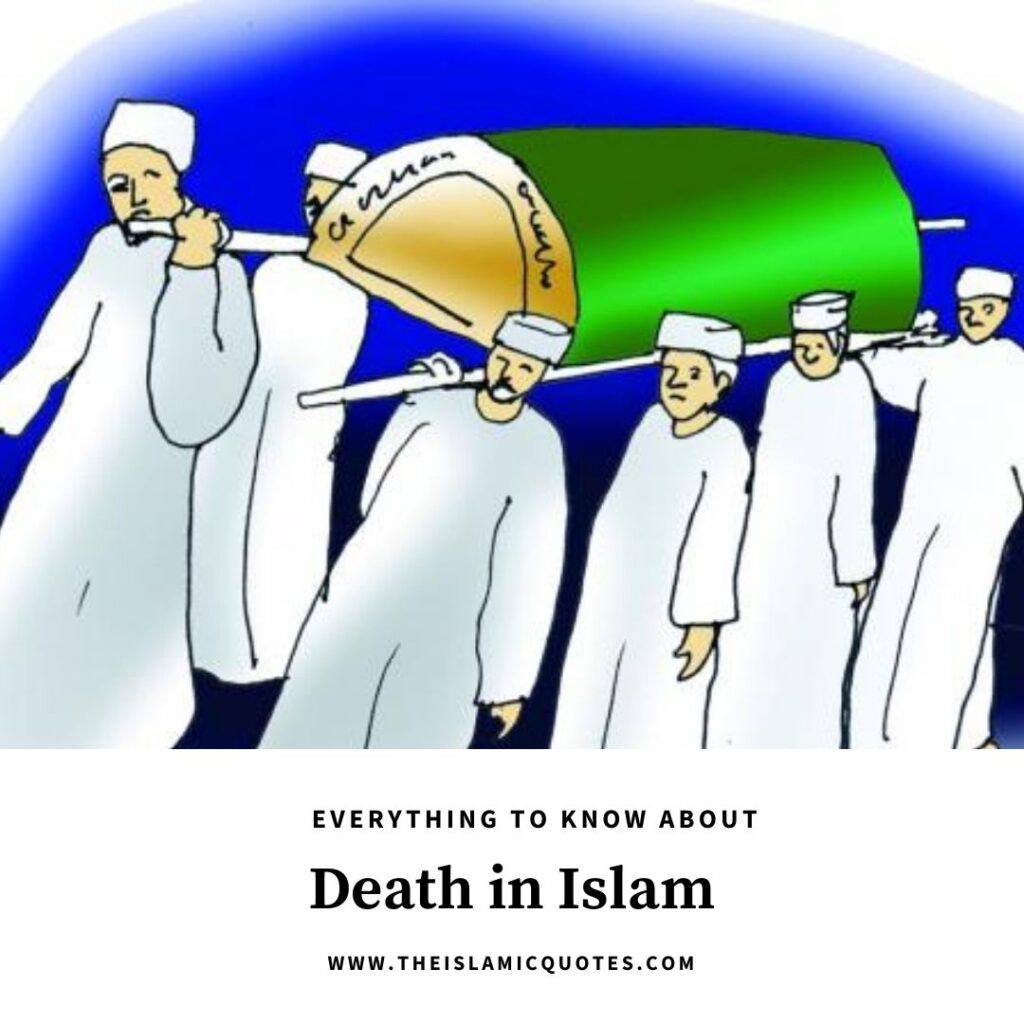
So, as we understand it, this worldly life is a place of action; we can do as many good or bad deeds as we like. The next life is one of reckoning, judgement and rewards/punishments.
What moves us from this life onto the next life is the reality of death.
For us Muslims, death isn’t The End. Rather, it is the beginning of a new life. Death is what transitions us from this life to the next.

Imagine it this way: you’re at a place for a test. Once you’ve given your test, you have to move to another room to collect your results. Once you leave this test room, you will not be allowed to enter again. So, basically, the door between the two rooms is the transitioning point.
That’s precisely what death is, according to the Islamic view. And, as Muslims we know it all at the top of our heads right? We know the entire procession. But only when we truly internalise this will we see the positive effects of this belief system.

You know what makes the concept of death so frightening, so haunting, and so depressing for most people? Among many reasons, one of them is that, to many, death seems like a black hole.
Death appears to be this big giant blackness at the end of one’s life that kills the life out of a person, makes a person forgotten, pushes him into non-existence and oblivion.
Not knowing what exactly death is and what happens after death leaves the naturally curious human mind in a state of perplexity.
We spend our entire lives trying to build something meaningful, to polish our personality and character, to become something. We spend hours and months and years accomplishing things.
And then? In one swift swipe of death, BOOM. Everything is gone, turned to dust. Never to be alive again. All the hard work, all the love, life, excitement, everything just comes to an abrupt halt.
A chaos of nothingness and an insurmountable black hole of oblivion, that’s what death appears to be in the minds of many.
And frankly speaking, that is truly depressing. Isn’t it?
The Islamic perspective brings about a whole shift to this mindset.
Knowledge is empowerment and healing. Knowing the reality of death and what happens after death is something that grants peace of mind to the believers, probably without them even realising it.
When you see death as a gateway to a new life, you do not feel depressed or anxious. In fact, the matter with a believer is the opposite. How so?
Let’s take a closer look.
8. Is Death a Gift for Muslims?
Take a look at this Hadith:

A gift, seriously? How can death be a gift for anyone?
Well, let’s understand the mindset that Islam teachers its believers. This is the mindset that the Sahaba (RA) had and something that any striving believer can achieve even today.
Allah SWT tells us repeatedly that He has sent us in this world to test us. Allah SWT says in Surah Mulk:
“[He] who created death and life to test you [as to] which of you is best in deed – and He is the Exalted in Might, the Forgiving.”
(Surah Mulk, 2)
So, as a believer, we constantly strive to do good deeds. We work hard, day in and day night, and more often than not, we do not see the results right away.
As humans, we are made such that we desire immediate results. But you see, here’s the test; for our good deeds, we do not get the reward right away.
All the prayers you have prayed, all the charities you have given, all the kind words you have spoken, have you received your rewards yet? The internal peace in the worldly terms, yes. But the true reward is stored for the hereafter, the reward that will make us go crazily happy.
Thus, a believer spends his entire life accumulating deeds, the rewards of which he doesn’t see in this world. His Lord has promised him great rewards and he patiently waits for them.
Imagine it like a man who has invested in his business. He works 6 hours daily. And doesn’t see any results for a month. Determined, he continues on. And on and on. Eight months pass by, and yet he sees no results. He feels low, demotivated but picks back up and continues with renewed hope.
He is told that after precisely one year, he will see the results of all his efforts of one year. All his hard work of 365 days, 6 hours each day.
Wouldn’t you expect him to be super excited as the end of the year approaches? His relentless hard work is about to pay off, the light at the end of the tunnel is finally here. What a big day!
Similar is the case of a believer. A believer doesn’t just strive six hours a day, but rather 24 hours for his entire life! He struggles, he cries, he falls. But he stands up, tries again, and continues to get closer to his Lord. He continues to battle with his Nafs and Shaytaan to please his Lord until the day of his death.
The day he dies is the day his struggle ends. Now is the time to reap what he has sowed. Now is the time for celebration. No more struggles, only comfort and enjoyment for all his lifelong hard work.
Doesn’t it make sense for death to be a gift then?
Moreover, Muslims who strive harder to follow the Deen are also tested more by Allah SWT. When death comes to them, they are also relieved of the difficulties of life. This also explains why death is a gift for the believer.
And truly, it can only be a gift for the believer. No one else.

Death is the reunion of the lover and his Beloved. A believer loves Allah SWT, he spends his entire life trying to do deeds to please him, and when the time comes to leave this world, he departs with peace, happiness, contentment, eager to meet his Beloved.
Now, there will be no more struggles, no more tears.
Now, he will rejoice in the beautiful and ever-peaceful company of his Lord, his highest friend.
Now, he will enter a life full of comfort and luxuries, ease and contentment, owing to his good deeds.
This is why when the Prophet ﷺ was on his deathbed, this is what he said:
“O Allah, (let me join) the Highest Companion.”
(Bukhari)
I also recommend that you go through these Inspirational Islamic Quotes About Death with Images.
7. Can We Wish for Death?
The outlook given to a Muslim by the Islamic teachings about death is a positive, realistic and hopeful one.
However, Islam doesn’t encourage being hopeless and depressed about life either.
The Prophet ﷺ said:

With this we learn that life is a blessing of Allah SWT, life is the only opportunity one has to do good deeds and beautify his eternal life. Wishing for one’s life to end means wishing for all of these blessings to be taken away. Thus, wishing for death is prohibited in Islam, particularly out of worldly distresses.
However, a Muslim should have the desire to meet his Lord, the most High, and be reunited with his eternal love. All of these feelings exist in the heart of a Muslim in perfect harmony and balance, neither making him distressed and hopeless, nor heedless and arrogant.
We previously discussed the concept of Death in Islam. Now let’s take a look at some crucial beliefs every Muslim needs to have regarding death. Belief systems are an integral part of Islam. Your beliefs are what bring you in and take you out of the fold of Islam.
So, what are the beliefs about death that Islam has taught us?
6. Death Is in the Hands of Allah SWT
The Quran and Hadith teach us that the matter of every living being’s death is something which is solely in the control of Allah SWT. No one has any control or say over his death. It is Allah’s to decide when a person will die or where he will die.
Allah SWT says in the Quran:

Although humans have the power to cause situations that can potentially kill a person or animal or any other being, the potential of the action only becomes reality if Allah SWT wills.
This is why many people who attempt suicides don’t die. And many times, people who fall off a building, or become trapped under rubble miraculously come out alive. Although the situation puts them in a potential state of death, Allah’s command for their death has not come yet, and so they stay alive.
This also explains why many times completely healthy and fit young individuals suddenly cease to exist; because Allah’s command for their death arrives.
Thus, as a Muslim, we must always believe that the ultimage One in charge of our lives and death is only and only Allah SWT.
5. Time of Death Is Predestined
Abdullah (b. Mas’ud) reported that Allah’s Messenger (ﷺ) who is the most truthful (of the human beings) and his being truthful (is a fact) said: Verily your creation is on this wise. “The constituents of one of you are collected for forty days in his mother’s womb in the form of blood, after which it becomes a clot of blood in another period of forty days. Then it becomes a lump of flesh and forty days later Allah sends His angel to it with instructions concerning four things, so the angel writes down his livelihood, his death, his deeds, his fortune and misfortune.”
(Sahih Muslim)
From this we learn that even before a person is born, his death date is predetermined.
This is not to say that if a person performs acts that are detrimental to his health or life, it would be allowed because death time is already pre-fixed. They are still now allowed, because the Prophet has also prohibited us from harming oneself and has taught us to pursue life in all its glory.
However, what this actually implies is that when death comes to a loved one, one should not say things like ‘this wasn’t an age to die,’ or ‘if I had done so and so, he/she wouldn’t have died.’
As a Muslim, we firmly believe that the time for death is fixed. Nobody can escape their death when the time comes, no matter what they do.
For example, if a person dies in the hospital during a surgery, we might inspect and see if there was medical negligence or error that became the cause of death, but we, as Muslims, wouldn’t believe that the person died only because of the doctors.
We believe that even if surgery would’ve gone well and the patient would be on the road to recovery, he would’ve still died at the same time and on the same day.
Because, in the worldly realm, many things can become an apparent cause for death. But in reality, the true and actual cause of death is always the command and will of Allah SWT. A person only lives in this world as long as Allah wants him to live. Not a second short, not a second more. Here’s everything you need to know about Destiny & Fate In Islam.
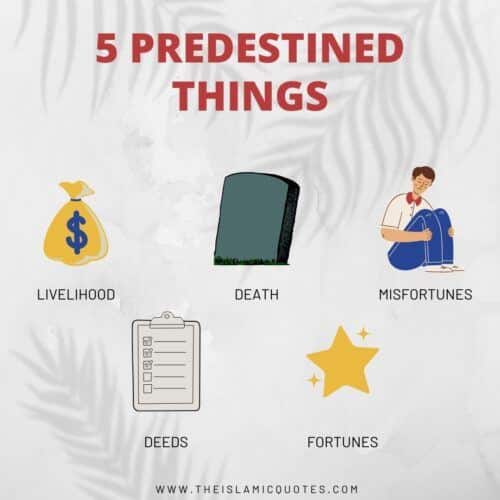
4. Psychological Benefits of Believing in Death
Our Islamic beliefs about death leave us with many psychological benefits.
People who do not have these beliefs can be traumatised for life. How so? Let’s understand with an example.
There is the incident of a lady who was about to give birth to her fifth child. The doctor gave her a date for her delivery. A day before the delivery, she saw a lot of water coming out from her when she went to the toilet. She cleaned it up and didn’t think more, knowing that she has to visit the hospital the next day anyway, for her due delivery.
However, when she visits the doctor the next day for her delivery, she is told that the baby has passed away because there was no water in the bag for the past 24 hours. She then connects it to the previous day’s happening and realises that it was the water bag that had burst. The doctor scolds her for not knowing this despite this child being her fifth.
Analyse this case and think about it. It is possible for the woman to go into deep depression thinking that she killed her child. A small negligence on her part cost a life. Potentially, she would live in guilt every single day. The loss of a child is already a great loss, and due to one’s one cause? This incident alone is enough to drive anyone into paranoia and clinical depression.
However, when, as a Muslim, she believes that death is pre-destined by Allah SWT at a certain time, she is saved from much distress and depression. Yes, natural guilt exists. But a woman with a firm faith wouldn’t take the entire blame on herself.
She would remind herself that her baby wasn’t destined to survive. Even if she had done the best she could (which she ideally should have), when Allah SWT preordained death for her baby, he/she wouldn’t have lived either way.
This belief relieves one of the psychological distress. Being the cause of someone’s death, especially a loved one, is an extremely traumatising affair. The belief in death relieves one of the over-extending distress, beyond the natural pain and guilt.
These beliefs are meant to keep us sane, mentally, emotionally and psychologically healthy. And every person with a strong faith can testify to this.
3. Benefits of Remembering Death
The Prophet ﷺ taught us to remember death often. He said:
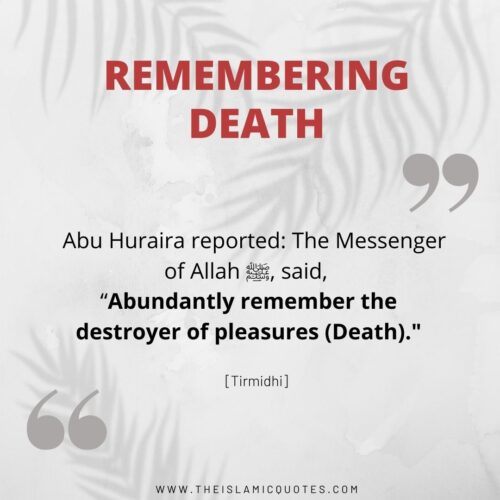
How does remembering death help?
It can sound daunting and even depressing to think about death. But there are a host of benefits that can actually be experienced if one develops this habit of remembering his death. Here are a few benefits of remembering death:
- Takes one out of the delusion of the glamor of worldly life and motivates him to do more and more good deeds, without delay
- Reminds one that time is less, thus pushing him to stop investing time and energy in futile and evil deeds
- Develops an appreciation and gratitude for loved ones, when one thinks death can come anytime and take them away
- Helps one develop patience, as one thinks about death and feels that relief and reward is closer
- Develops an Aakhirah-oriented attitude rather than a Dunya-oriented attitude
- Enables one to fulfil his responsibilities and duties better, as he thinks about the reckoning being closer
- Makes one become mentally prepared for death, thus reducing the pain at the passing of a loved one, and enabling one to prepare for his own death too. This saves one of a lot of anxiety and depression accompanied with death
- Encourages one to constantly seek Allah’s forgiveness and keep his slate of deeds crystal clear
- Removes arrogance and haughtiness from a person as he is reminded of how feeble and temporary he is
There are many other benefits that one can unlock as one lives this advice. To remember death frequently is one of the wisest practises one can develop. However, one should not let the thoughts overcome him to such an extent that he stops benefitting from life itself.
2. Why Aren’t We Informed About Our Death Date Beforehand?
This is a small question that can arise in curious minds. The amazing thing is that even this decision of Allah SWT is not devoid of wisdom.
One of the hidden wisdom behind the unknown nature of death is that if one were to know his death date from before, he would do good deeds only immediately before his death, instead of spending an entire life on goodness. He would wait for a day before his death to seek forgiveness.
Whereas Allah SWT wants us to spend our entire life on goodness and piety, so the world can become a better place.
Moreover, one would also panic and get depressed with life as the date would draw closer. He might get distressed to the point of becoming paralysed from doing anything good
This is why, in His infinite wisdom, Allah SWT kept the matter of death unambiguous on humankind, even the Prophets.
Not knowing when death will come such that it can strike anytime makes one constantly engage in good deeds, if he pays heed to this reality. It enables him to strive to live everyday as the last day of his life.
1. What Kind of a Death Should We Pray For?
Just like we pray for many things in our life; spouse, children, job, house, etc, we should also make duas for a good death. This is not the same as wishing for death.
It simply means that we acknowledge that death is a reality of life, and one day or the other, our time will come. So, we pray that when it does come, we die a death of honour.
One should seek the following things regarding his death:
- Death on Emaan, with the Kalima Laa Ilaaha Ill Allah being his last words
- Death of Aafiyah. One should seek refuge from sudden and tragic deaths
- Death as a Shaheed
- Death in a state where man is pleased with Allah and Allah is pleased with him
- Death in a state where a man has fulfilled all his life obligations and debts
You can brainstorm and add more to the list.
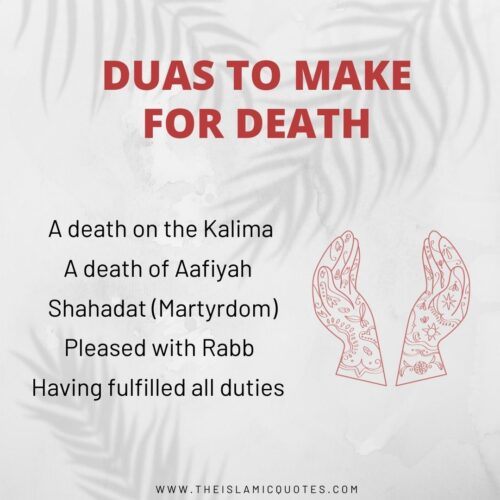
Final Words
While death is something we hardly ever talk about, it is imperative that we think about it and prepare for it. The life of a Muslim is not one of heedlessness. Rather, it is one focused on Akhirah.
The more aware we will be about our death, the better will be our quality of life. So, let’s knock out of our delusions of this world and prepare for an eternal life of happiness and contentment.

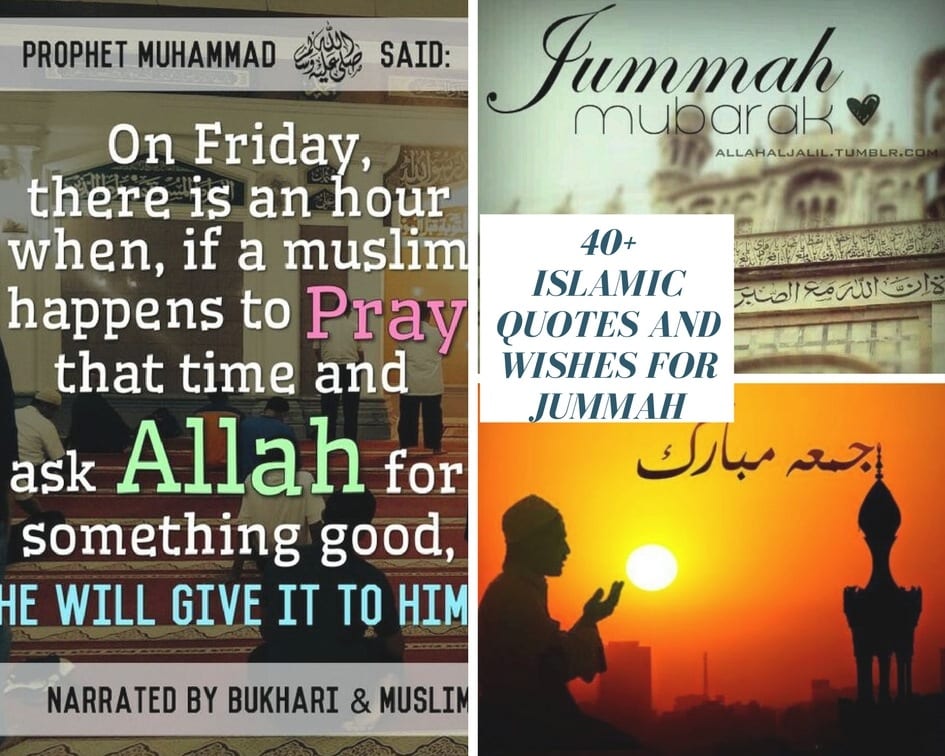




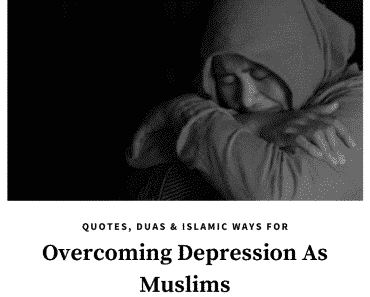
Beautiful article barakallah feek.
JazakAllah for your kind words. I would also request that you check out our new forum for Islamic discussions.
Best regards,
Team TheIslamicQuotes
Beautiful article. While I have learned from this article, I cannot but wish that Allah grants me death quick. I’m tired of Dunya and do not wish to continue further. I wish he would take me now. I pray never to slip to unvlbeloef again. I’m tired.
Ruq, I hope you’re doing better since you commented!
Don’t forget Allah has told us Himself to not despair of His Mercy. However hard life can be, “with hardship goes ease”, I hope your life is significantly better, happier, and more fulfilled now than you were at the time you commented.
Please take care of yourself.. wishing you all the best.
Asma.
Nice article and good reminder. But Ruq commented talking about his depression and how he wants to die. Why would you reply to that thanking him for his “kind words”? Please take the time to actually READ what people are saying, and if you are going to reply, please reply with EMPATHY and KINDNESS.
No one Googles “Death in islam” (and comes across your article) unless they’re going through a severely depressing and difficult time.
Excellent reminder. JazakAllah Khairan.
I have been a practicing Muslim for over 45 years, Alhamdulillah. But the fear of death haunts me day and night. Like the tide from the sea our Eman Ebbs and flows constantly. I would not like to be in a place where I would be with people who disobeyed Allah SWT in this world.
There is a Du’aa which says Oh Allah grant me life if it is better for me, give me death if it is better for me. We mere mortals do not know where our salvation lies.
So just pray Allah SWT grants you what is best for you. Life or death.
we are told never to forget death, but life should help us with our chances of a better hereafter
The fear of Allah is natural for Muslims… we know how piuos and pure the prophets and sahaba were and still they would spend their nights crying for the fear of Allah. I believe this fear brings us closer to Allah and gives us the realisation that this life is only temporary.
I would also request that you visit our Islamic forum to engage in Islamic discussions.
Best regards,
Team TheIslamicQuotes
Jazakallahu khairan, masha Allah. I really enjoyed reading this article may All reward you.
Thank you for your kind words.
I would also request that you visit our Islamic forum to engage in Islamic discussions.
Regards
Team TheIslamicQuotes